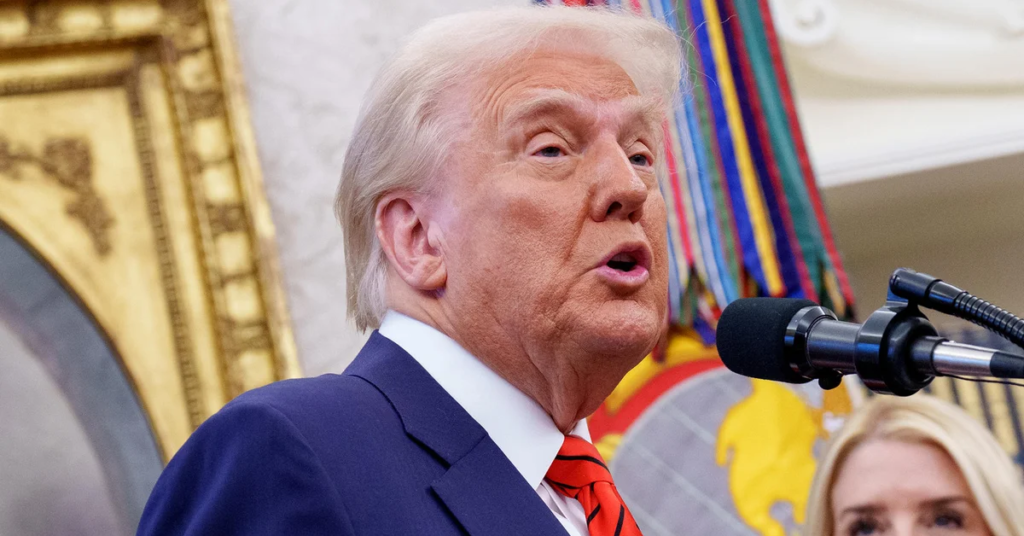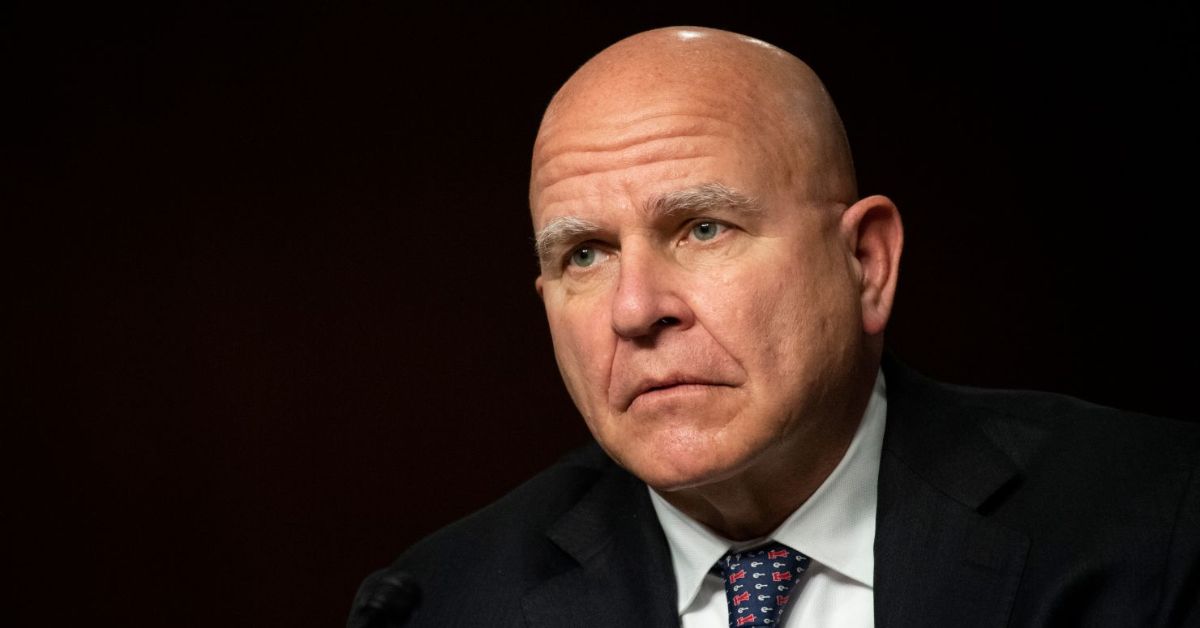In a bizarre turn of events, retired Lt. Gen. H.R. McMaster received an unexpected phone call from the White House just over a month ago. The call, which reached McMaster’s personal cell phone, initially instructed him to stand by for the president.
McMaster, who had served as President Trump’s national security adviser, was caught off guard by this unexpected outreach, particularly after the tense relationship that had developed between the two following McMaster’s ousting from the administration.
McMaster had served as national security adviser during Trump’s first term but was removed after just 13 months. His departure came amid growing tensions between the two, with McMaster often disagreeing with Trump’s foreign policy decisions. One of the most notable points of conflict occurred over Trump’s approach to Russian President Vladimir Putin and his skepticism about the possibility of ending the ongoing war in Ukraine.
McMaster, who had previously voiced his concerns publicly, had appeared on CBS’ “60 Minutes” just the day before the call and had criticized Trump’s handling of the Russian leader. In the interview, McMaster expressed doubts about Trump’s ability to deal with Putin, stating that the Russian president was playing on Trump’s insecurities through flattery.
Just a day before the phone call, on March 2, President Trump posted a scathing comment on social media about McMaster. He called his former aide a “weak and totally ineffective loser,” the latest in a series of public insults from Trump. This harsh criticism came despite the fact that McMaster had worked under Trump as national security adviser, a role that requires close coordination with the president on issues of national security.
Given these circumstances, McMaster was understandably surprised when he received a call from the White House. According to four sources who spoke with CBS News, the call was directed to McMaster’s personal cell phone, where he was told to wait for the president. When McMaster picked up the phone, he was greeted by a familiar voice—President Trump’s. However, there was a slight problem: the president had dialed the wrong McMaster.
“Henry…” Trump’s voice said on the other end of the line, which immediately alerted McMaster to the mix-up. McMaster, who is commonly known as H.R. (short for Herbert Raymond McMaster), realized that the president had intended to call someone else—South Carolina Governor Henry McMaster, not him.
“Mr. President, this is H.R. McMaster,” McMaster clarified, correcting the president on the error.
Trump, clearly surprised by the mistake, responded with an expletive-laden question: “Why the f*** would I talk to H.R. McMaster?” According to two sources familiar with the conversation, Trump then launched into a verbal critique of McMaster, criticizing his performance and expressing disdain for their past relationship. The call was brief, lasting only a few minutes.
It was later revealed that the president had intended to call Governor Henry McMaster, who is a close ally of Trump. The mix-up occurred when an aide working with the president mistakenly dialed the wrong McMaster, leading to the brief and awkward conversation between the president and his former national security adviser. It remains unclear who was directly responsible for the error, though the situation highlights the potential pitfalls that can come with handling communication at the highest levels of government.
A White House official declined to comment on the call or provide details about whether the conversation took place. However, White House communications director Steven Cheung did issue a statement shortly after the news broke.

In the statement, Cheung criticized McMaster for his recent public statements and accused him of “beclowning” himself. He also dismissed McMaster’s recent memoir, At War with Ourselves, calling it “filled with lies” and claiming that McMaster had written it in a futile attempt to salvage his damaged reputation.
In response to the situation, McMaster, who is now a CBS News contributor, chose not to comment on the accidental call. However, McMaster has been outspoken about his views on President Trump’s handling of international relations, particularly when it comes to Russia. In his memoir, McMaster discusses his belief that Putin exploited Trump’s ego and insecurities through flattery, a tactic that McMaster believes contributed to the deterioration of U.S.-Russia relations.
The mistaken phone call to McMaster on March 3 came just days before another communications error involving Trump’s national security team. According to reports, Atlantic editor-in-chief Jeffrey Goldberg was mistakenly added to a group chat with top Trump national security advisers, where they discussed sensitive information about U.S. military strikes in Yemen. Mike Waltz, the current national security adviser, later took responsibility for the error, admitting to Fox News that it was a mistake to include Goldberg in the conversation.
These incidents highlight the challenges and risks of managing communication within the high-pressure environment of the White House, where even small mistakes can lead to awkward situations or, in some cases, the release of sensitive information. The accidental call to McMaster, though ultimately harmless, became an amusing reminder of how easy it can be to mix up phone numbers in the fast-paced world of politics.
Despite the public sniping and tension between McMaster and Trump, the former national security adviser’s reputation remains intact among some political analysts and insiders. Many believe that McMaster’s criticism of Trump, particularly regarding Russia, was rooted in genuine concerns about U.S. foreign policy and national security. In his memoir, McMaster details the struggles he faced while working in the Trump administration and his growing concerns over Trump’s approach to foreign diplomacy.
While the accidental call may have been embarrassing for the president, it is unlikely to have a lasting impact on McMaster’s career. He continues to be an influential voice in national security discussions, providing expert commentary on various news outlets. Whether or not he and Trump will ever reconcile remains uncertain, but for now, McMaster appears content to share his views and insights on the state of U.S. foreign policy without the need for the president’s approval.
Disclaimer: This article has been meticulously fact-checked by our team to ensure accuracy and uphold transparency. We strive to deliver trustworthy and dependable content to our readers.








